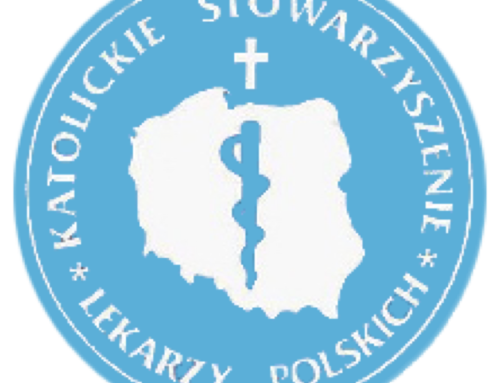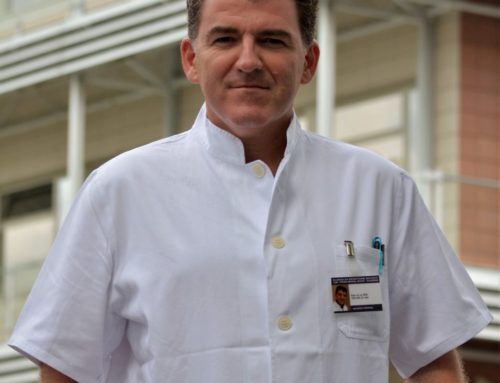11 September 1983
To the disabled and elderly in Austria
“A world without the sick, even if it may sound paradoxical, would be poorer because it would be poorer in lived-out humanity, poorer in love for others, which at times is even heroic”. This, in short, is the message the Holy Father left with the handicapped and elderly of the Mercy Home in Vienna on Sunday afternoon, 11 September.
Dear patients,
Dear brothers and sisters in need of care here in the Haus der Barmherzigkeit and elsewhere in hospitals, institutions and homes throughout Austria,
1. This hour during my stay in Austria is entirely devoted to you. I want to be with you as a messenger of Christ who wishes to inspire cheerfulness in you, and as someone who suffered himself for several weeks just as you are suffering. According to God’s inscrutable ways my health was restored through medical skill and expert care. Thus I am standing before you as a healthy man, but not as a stranger. Together let us strive for this goal: Let us not allow a gap to open between us that separates the healthy from the sick!
Perhaps you sometimes fear that you are a burden for us. Perhaps somebody has even told you this or implied it. In that case I ask your forgiveness. Of course, you need us, you need our assistance and care, our hands and our hearts. But we need you just as much. You have to agree that much is given to you. But you in return give much to us.
Your ailments make us aware of the frailty of human life, of its dangers and limitations. They also remind us that one cannot do everything one wants to, that not everything one starts can be completed. Of course, you happily remember everything beautiful you once experienced and all the good you did; you should be grateful for that. But now you see everything in a new light, and you judge various things or events differently from before. You know better now what matters in life. By telling us, by showing us what you are experiencing now and by the way in which you tolerate it, you can communicate to us a wisdom of life chastened and matured through your suffering. The Pope thanks you for preaching to us through the patience with which you bear your sufferings. Your example cannot be replaced by any pulpit, school or lecture. The sickroom teaches a people as much as classrooms and lecture halls.
The cross is at the very centre of your present lives. Many run away from the cross. But he who wants to escape the cross cannot find genuine joy. Young people cannot grow strong and adults cannot stay faithful unless they have learned to bear a cross. Dear patients, this cross was placed on you. Nobody asked you whether you wanted it. Teach us, the healthy, to accept it in good time and to bear it with courage, everyone in his own way. It is always a part of the Cross borne by Christ. Like Simon of Cyrene we are allowed to share in the Cross for a part of his way.
You belong to us
2. Now I should like to turn specifically to you who are stricken with the heavy load of years and who suffer from the frailties and limitations of old age. You, too, need our help. Yet it is you who bestow gifts on us. What we are building today is based on your work, on your achievements, on the investments you made for us. We need your experience and your judgement. We need the faith with which you live and have lived, and your example. You must not shut yourselves off from us. You must not remain outside the doors of our homes and the gates of our world. You belong to us. A society which dissociates itself from its aged would not only deny its own origins, but also deprive itself of its future.
Neither the sick nor the aged are outsiders of society. They constitute an essential part of it. We all are indebted to them. In this hour I should like to thank all of you who dedicate your suffering and devote your prayers to the many cares and concerns of mankind. Healthy persons should, of course, pray as well. But your prayers bear special weight. You may call down from heaven blessings galore for the benefit of your friends and acquaintances, your homeland and all those who need the help of God. On this earth man cannot praise and worship God more truly than with a heart that in suffering continues to believe in this wisdom and love. Patiently endured suffering is in itself a form of prayer and an abundant source of grace. This is why I should like to ask all of you, turn your rooms into chapels, look at the image of the crucified Christ and pray for us, sacrifice for us – also for the work of St. Peter’s Successor, who places his special trust in your spiritual help and blesses each of you with all his heart.
In today’s meeting with you I think in particular of those among you who have been so ill since their childhood that their physical and intellectual capacities have not developed to the full. I think of people who are severely handicapped as a result of an accident or an insidious disease. I also think of those for whom growing old means losing contact with their environment and their fellow men, i.e., those aged persons who are unable to pass on the wisdom of their lives and grasp the kindness others lavish on them. When looking at these individuals who are lacking such essential capacities, we must ask ourselves, “What does human dignity consist in?”
Man derives his nobility from the fact that God has created him, that God has said “Yes” and accepted him, and that God will bring him to full perfection. Against this background, doesn’t all human life seem fragmentary and inadequate, dependent on God’s perfecting hand? God’s fatherly Yes embraces the healthy and the sick, those who are lively and those who are tired, the mobile and the handicapped, the spiritually alert and those whose spirit lies dormant. On each day of their life this Yes takes them a step closer to perfection and makes their lives worth living.
Dear Austrians, may the Lord sometime say of your behaviour towards your sick and handicapped fellow men, in whom he himself encounters you, “I was a burden and you carried me: I was useless and you valued me; I was disfigured and you recognized my dignity: I was sick from birth and you accepted me” (cf Mt 25:35 ff).
The sick and the aged, the handicapped and those in need of care demonstrate to us in a special way how very much we depend on each other and what profound bonds link us. They present the greatest challenge to our solidarity and our love for our neighbour. In cases where the sick are no longer capable of understanding and giving thanks for the care bestowed upon them, it becomes evident how selfless and devoted the love of those serving them must be. Disease and suffering are always a severe test, but a world without sick people would be poorer, however paradoxical this may sound. It would lack practical charity and selfless, in some cases even heroic, love.
On behalf of and with all the sick and those in need of care in Austria I should like to thank most cordially all the doctors, nurses and the paramedical staff, who are devoted to their work in this “Haus der Barmherzigkeit” as well as in other institutions throughout the country. My thanks go to all those who through their work here and in other hospitals, in institutions and within families, as well as through their dedicated commitment, contribute to alleviating suffering, curing diseases and instilling new courage and confidence in the aged.
I address a sincere word of encouragement to those mothers and fathers who nurse, with devoted care, often in an unsympathetic environment, their sick children who may perhaps suffer from a life-long handicap. I also address all those who give loving care to their aged parents and shoulder many inconveniences, so as to return some of the selfless love their parents earlier gave them.
My thanks are not only a wish. At the same time you have the promise of Jesus Christ who came to serve and to heal the sick. “As you did this to one of the least of these brothers of mine, you did it to me” (see Mt 25:40). He is your strength, he is your reward. He is, if you open yourselves to him, the quiet joy amidst your activity.
At the same time, Christ is consolation in your grief, dear brothers and sisters who are sick or in need of care. He, who stands by the messengers of this love in their service, stands also by your side in your time of need. You are made in his own image in a very special way. He who healed the sick himself suffered. He suffered more extreme desolation, so that we shall never feel forsaken. May he, Christ, our Lord and Saviour, be always with you and bless you all in his abundant mercy and love!
John Paul II








